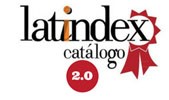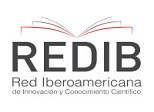Approach to the Concepts of Equality and Diversity in the Birth of Western Educational Systems
DOI:
https://doi.org/10.69890/hallazgos21.v3i2.283Keywords:
Educational systems; liberal state; models of education; equality; diversity.Abstract
The origin of the Liberal State in the late eighteenth century and early nineteenth century was the cause of the birth of Western educational systems. Education acquired great political significance, consolidating as the basis for the development of the states. Principles such as equality, diversity and multiculturalism emerged, which marked the appearance of modern education adapted to the society of the time. The processes of organization, segmentation and graduation, linked to various causes of the new educational system (promotion of science, industrialization and secularization of education) led to the appearance of new models of education, mainly the New, Single, Comprehensive and Polytechnic School.
In this contribution we intend to make an approach to how the concepts of equality and diversity have varied in the process of appearance and consolidation of the nearest educational systems around us.
References
Badillo, P. (2003) (coord.) Pluralismo, tolerancia, multiculturalismo. Reflexiones para un mundo plural. Madrid: Universidad Internacional de Andalucía / Akal.
Beck, C. (1990) Better Schools. A Values Perspective. Bristol: The Falmer.
Freire, P. (1975) La desmitificación de la conciencia y otros escritos. Bogotá: editorial América Latina.
García, J., Pulido, R. A., & Montes, Á. (1993) “La Educación Multicultural y el concepto de cultura. Una visión desde la Antropología social y cultural”, Revista de Educación 302, 83-110.
García, T. (1985) La polémica sobre la secularización de la enseñanza en España (1902-1914). Madrid: Fundación Santa María.
Gimeno, J. (2000) La educación obligatoria: su sentido educativo y social. Madrid: Morata.
Green, A., Leney, T., & Wolf, A. (2001) Convergencias y divergencias en los sistemas europeos de educación y formación profesional. Barcelona: Pomares.
Manjón, A. (1956) Edición Nacional de las Obras Selectas de D. Andrés Manjón. Tomo X. Hojas circunstanciales. Hojas históricas. Hojas cronológicas del Ave María. Madrid: Patronato de las Escuelas del Ave María.
Núñez, L., & Romero, C. (2002) Pensar la Educación. Una aproximación sistémica a la Filosofía de la Educación. Sevilla: ed. PreuSpínola.
Ossenbach Sauter, G. (2011) Corrientes e instituciones educativas contemporáneas. Madrid: UNED.
Pedró, F., & Puig, I. (1998): Las reformas educativas: una perspectiva política y comparada. Barcelona: Paidós.
Ruiz, C. (2017) “Estrategias para educar en y para la igualdad: coeducar en los centros”, ATLÁNTICAS – Revista Internacional de Estudios Feministas, 2, 1, doi: http://dx.doi.org/10.17979/arief.2017.2.1.2063.
Santos, M. A. (2015). “Género, poder y convivencia. La escuela como mezcladora social”, en J. J. Leiva et al. (Coord.). Género, Educación y Convivencia. Madrid: Dykinson.
Tiana, A. (2008) “Plan Langevin-Wallon”, Transatlántica de educación 5.
Tiana, A., Ossenbach, G., & Sanz, F. (2002) Historia de la Educación (Edad Contemporánea). Madrid: UNED.
Viñao, A. (2002). Sistemas educativos, culturas escolares y reformas. Comunidades y cambios. Madrid: Morata.
Downloads
Published
How to Cite
Issue
Section
License
Los artículos enviados a la Revista Científica Hallazgos21 deberán ser totalmente originales e inéditos.
Los autores son los responsables de los textos y las imágenes incluidas en los artículos y no necesariamente reflejan el pensamiento de la editorial o de la Pontificia Universidad Católica del Ecuador, Sede Esmeraldas (PUCESE).
Los autores disponen cederle a la Revista Científica Hallazgos21 todos los derechos inherentes para la edición, publicación y distribución o divulgación del mismo.
Se autoriza a las revistas firmantes de los acuerdos de Encuentros de Revistas Latinoamericanas para reproducir en parte o totalmente los artículos con la sola mención de la fuente claramente señalada.







